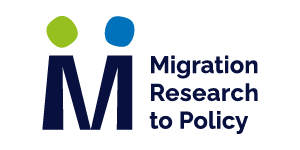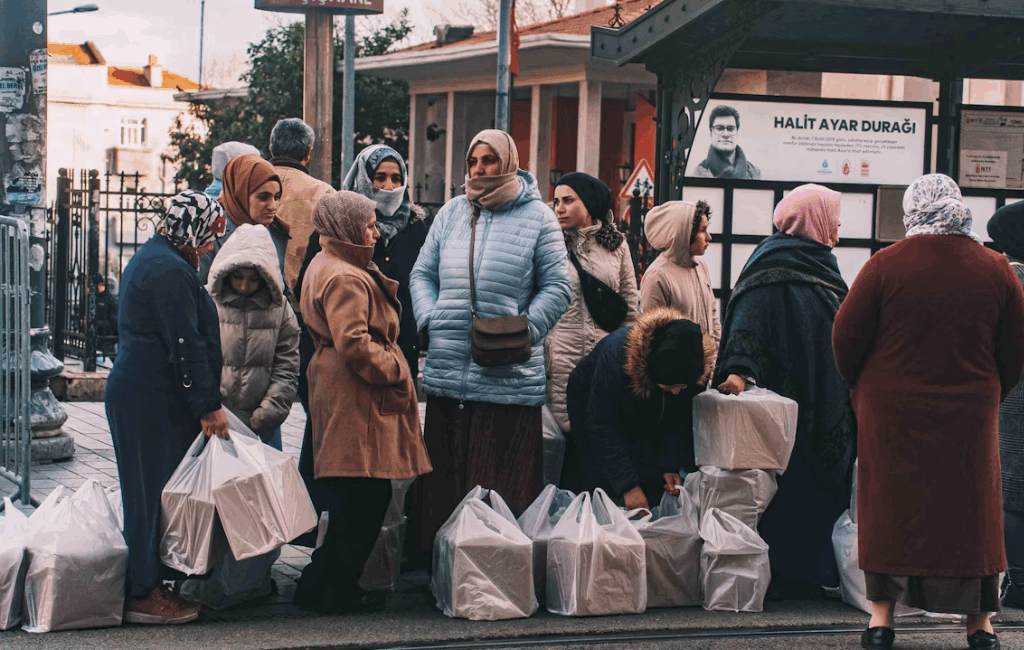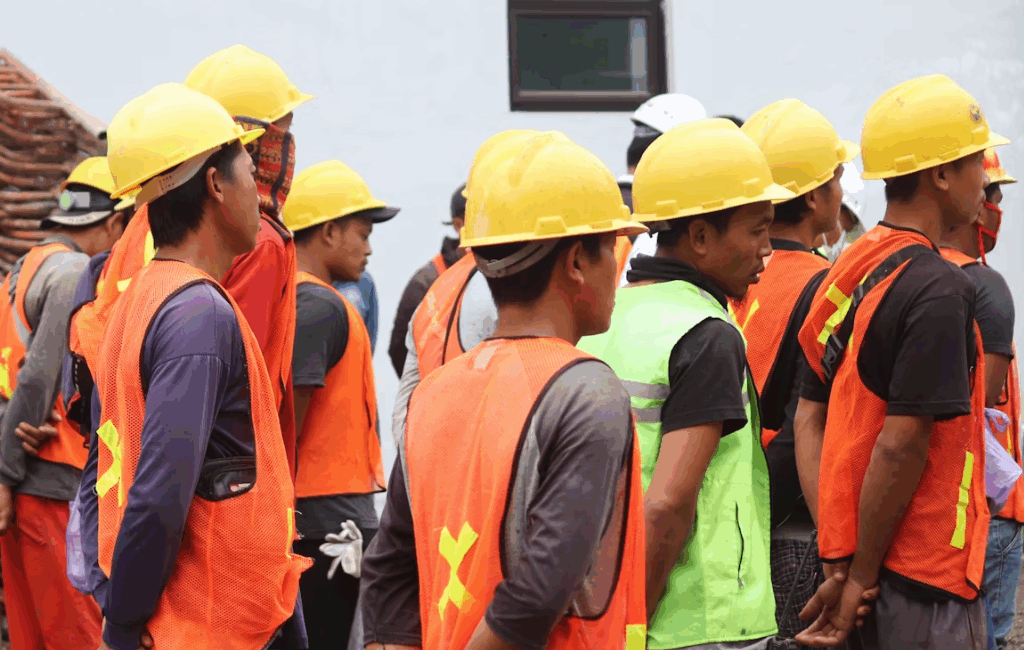
ENGAGEMENT HUB
15 key factors limiting the impact of migration research in Türkiye
Author
About
Meltem İneli Ciger and Özgenur Yiğit Aksu
research to policy
Türkiye has generated a substantial body of migration research, especially since the onset of the Syrian mass displacement positioning Turkish academia as a key contributor to the migration literature. Yet, despite this growing output, its influence on domestic policymaking remains strikingly limited. Academic insights are often overlooked, underutilised, or disconnected from real policy needs. Despite international attention to the research-policy gap in migration governance (Natter and Welfrens 2024), there has been little systematic analysis of why this disconnect persists in the Turkish context. One notable exception is TESEV’s 2024 policy report, conducted under the RESLOG project, which evaluated the migration data management capacities of 15 municipalities and identified practical barriers to data sharing and local-level policy development. This study addresses that gap by identifying the structural and operational barriers that continue to marginalise research in Türkiye’s migration policy landscape.
Based on findings from three focus group discussions and expert interviews with 28 stakeholders, including policymakers, local officials, researchers, and civil society representatives, this study highlights critical weaknesses in data accessibility, institutional coordination, research visibility, and inclusive engagement. Our findings suggest that limited formal structures, short-term project cycles, and the exclusion of migrant voices continue to undermine efforts to connect research and policy. Political sensitivities and ad hoc communication further restrict knowledge exchange. Addressing these challenges is essential for fostering inclusive, evidence-informed migration governance.
1. Limited access to reliable migration data
Migration data in Türkiye is often not systematically collected or publicly available due to confidentiality restrictions. This lack of transparency hinders evidence-based policymaking and makes it difficult for researchers to produce timely and accurate analyses.
2. Short-term, project-based research
Migration research in Türkiye is largely shaped by short-term, project-based funding tied to shifting donor priorities. This limits continuity and often results in findings emerging too late to influence active policy processes. Research agendas are frequently steered by international funders, such as the EU, whose priorities may not align with domestic needs. As a result, critical issues are under-researched, and attention is diverted to fundable but not always impactful topics. This undermines the development of a cohesive, policy-relevant evidence base.
3. Absence of a national research network or database
One of the key structural challenges in Türkiye’s migration research landscape is the absence of a centralised, comprehensive database or national research network that maps scholars, institutions, and thematic areas of expertise across the field. This gap hinders expert identification, interdisciplinary collaboration, and alignment between research and policy. While the Göç Araştırmaları Merkezi (GAM) was established in 2015 by the Directorate General of Migration Management to support migration-related research, it has not developed into a widely accessible or comprehensive platform. Its digital repository remains limited in scope and usability.
Without such infrastructure, it is difficult to identify relevant experts, foster interdisciplinary collaboration, or strategically align research efforts with policy needs. Although there have been attempts to establish migration-focused research centres and thematic academic networks, these initiatives tend to be fragmented, often limited to individual universities, specific disciplines, or regionally concentrated actors. Participation frequently depends on informal relationships or institutional affiliations, reinforcing a non-transparent and exclusionary model of engagement. Rather than operating through open and merit-based systems, access to research–policy spaces often rely on pre-existing personal networks.
4. No formal mechanisms for policy engagement
Türkiye lacks formal structures to connect migration research with policymaking. There are no established platforms for regular engagement between researchers and policymakers, leaving research findings disconnected from policy needs. Existing mechanisms, such as advisory boards, are fragmented, operate in isolation, and lack horizontal coordination. The abolition of the Migration Policy Board in 2018 further weakened institutional dialogue (Cf. Memisoglu 2018). Although some ministries maintain advisory bodies, these do not offer a cohesive, cross-sectoral space for integrating academic input into national migration policy.
5. Weak interdisciplinary collaboration
Migration issues intersect with health, education, urban planning, and labour policy. Yet, interdisciplinary migration research remains underdeveloped in Türkiye. This limits the relevance and comprehensiveness of research for policymakers seeking integrated solutions.
6. Reliance on informal networks
Engagement is often based on personal familiarity, particularly in Ankara and Istanbul. This creates barriers for early-career researchers and those outside metropolitan areas, limiting the diversity of voices that inform policy.
7. Institutional inertia
Policymakers often resist new evidence due to bureaucratic conservatism, concerns about accountability, or uncertainty about implementation. Researchers report that their findings are rarely adopted, even when they align with policy needs.
8. Language barriers
Research published in English is rarely read or used by policymakers. Without active translation or dissemination efforts, international literature has little influence on Türkiye’s policy landscape.
9. Lack of engagement protocols
There are no clear rules or frameworks to guide collaboration between researchers and policymakers. This results in confusion around roles, expectations, and timelines, especially in commissioned research projects.
10. Marginalisation of early-career researchers
In the absence of institutional pathways or mentorship structures that facilitate engagement with policy processes, young scholars often depend on the networks of their supervisors or senior academics to gain visibility and access. Where such support is lacking, opportunities to contribute to policy-relevant projects remain limited. This disconnect not only restricts the policy impact of emerging research but also undermines the development of a new generation of scholars equipped to engage meaningfully with migration governance.
11. Migration studies lack disciplinary recognition
Migration studies are not widely recognised as a standalone academic field. This undermines their institutional presence and reduces their visibility within policymaking circles.
12. Exclusion from policymaking
Researchers and civil society actors report limited access to policymaking spaces, especially in politically sensitive areas. There is little institutional culture that values independent or critical academic input.
13. Politicisation of migration
Migration is a politically charged topic in Türkiye. Policymakers often dismiss evidence that challenges their positions, even when findings come from internationally funded or high-quality research. This politicisation limits space for open, evidence-informed debate.
14. Migrant and refugee voices are missing
Migrants are frequently excluded from meaningful participation in research and policy development processes in Türkiye (cf. Memişoğlu and Ilgıt 2017). Their role is often limited to data collection. There is no systematic feedback loop, and research findings are seldom shared with participants. This absence reduces trust and policy legitimacy.
15. Independent research is undervalued
Policy influence is more often afforded to affiliated think tanks or institutions aligned with government positions. Independent or critical research is viewed with suspicion, limiting its policy uptake. Political sensitivities and shrinking academic freedom further restrict open dialogue.
Dr Meltem İneli Ciger, Associate Professor, Süleyman Demirel University
Dr Özgenur Yiğit Aksu, Research Assistant, Süleyman Demirel University
Submit your idea for a ‘short’ to be featured on the Co-Lab.












